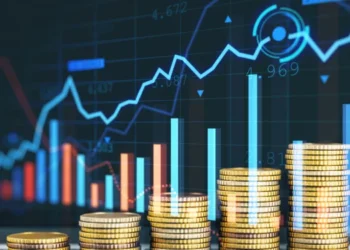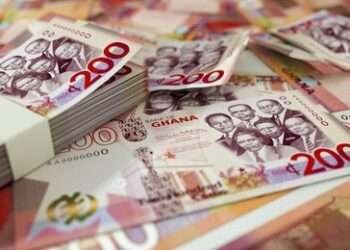Ghana, long celebrated as one of the strong pillars of democracy in Africa, has once again demonstrated its commitment to peaceful electoral processes.
The just-concluded election saw the return of former President John Dramani Mahama, whose victory has sparked hope for economic rejuvenation from experts and analysts amidst growing economic challenges.
Ms. Gifty Annor-Sika Asantewah, a Financial Market Analyst and the President of Women In Forex Ghana, while reacting to John Mahama’s emphatic victory in an interview with the Vaultz News stated that his return signifies a crucial shift, not only in Ghana’s political settings but also in its investment climate and the performance of the Ghana Stock Exchange (GSE).
“The outgoing administration faced significant criticism for exacerbating economic hardships. Rising inflation, a depreciating cedi, and high debt levels have constrained businesses, households and the investment environment.
“These economic challenges discouraged foreign investment and eroded investor confidence in key sectors. Many Ghanaians viewed this election as a referendum on the country’s economic management, and Mahama’s win reflects a collective demand for change.”
Ms. Gifty Annor-Sika Asantewah
Renewed Investor Confidence
Ms Annor-Sika noted that John Mahama’s victory is likely to bolster investor confidence, especially as his campaign emphasized fiscal discipline, economic recovery, and job creation.
“Investors will be keenly watching his policy implementations, particularly regarding the business environment, taxation, and public debt management. His administration’s ability to present clear and actionable policies will be crucial in attracting foreign direct investment (FDI) and retaining domestic capital.”
Ms. Gifty Annor-Sika Asantewah
Moreover, the analyst averred that Mahama’s track record as a leader who championed infrastructure development and partnerships with international financial institutions could play a significant role in reshaping Ghana’s investment narrative. “His previous tenure saw notable infrastructure investments, which positioned Ghana as a strategic economic hub in West Africa,” she said.
Implications for the Stock Market
According to Ms Annor-Sika, the Ghana Stock Exchange (GSE), a barometer of investor sentiment, could see significant activity in the coming months. She noted that even though under the current administration, the GSE has made significant gains, it wasn’t consistent and that it faced challenges, with a subdued performance in sectors such as banking, manufacturing, and agriculture. “The uncertain economic environment led to bearish trends as investors adopted a wait-and-see approach,” she stated.
Ms Annor-Sika iterated that Mahama’s return will introduce a wave of optimism. With promises to stabilize the macroeconomic environment and introduce pro-business policies, the GSE could experience a rebound.
“Sectors such as energy, telecommunications, and financial services are expected to attract renewed attention. Increased market activity could also result in greater participation from institutional and retail investors, potentially driving up stock valuations.”
Ms. Gifty Annor-Sika Asantewah

Key Policy Areas to Watch
Meanwhile, John Mahama has acknowledged the pressing need to address Ghana’s ballooning debt. His administration is expected to focus on fiscal consolidation, cutting unnecessary expenditures, and increasing revenue through diversified tax measures. Reducing debt will create more room for public and private investment, positively influencing the GSE.
John Mahama’s previous focus on infrastructure development will likely continue. Improved infrastructure will enhance the ease of doing business, attract FDI, and boost productivity. Infrastructure projects could drive growth in construction-related stocks and create a ripple effect across other sectors.
The incoming administration has expressed its intention to support SMEs and entrepreneurs, recognizing their critical role in driving economic growth. Initiatives to enhance access to credit, reduce regulatory bottlenecks, and provide tax incentives could improve business performance, with corresponding gains in stock market activity.
Ghana’s energy and mining sectors are pivotal to its economy. A stable regulatory environment, coupled with policies to attract global players, could revitalize these sectors. The energy sector, particularly renewable energy, could become a new growth area under Mahama’s leadership.
Despite the optimism, challenges remain. John Mahama will inherit an economy burdened by high inflation, a depreciating currency, and low investor confidence. While his promises have raised hopes, their execution will be scrutinized. Furthermore, global economic conditions, including fluctuating commodity prices and rising interest rates in developed markets, could impact Ghana’s recovery trajectory.
For Ghana to maximize the potential of this new chapter, Mahama’s administration must adopt a transparent and inclusive approach. Restoring trust in governance and the economy will require consistent communication with stakeholders, including the investor community, local businesses, and international partners.
The Ghana Stock Exchange, in particular, stands to benefit significantly from improved macroeconomic stability. A robust stock market will not only attract investments but also serve as a source of long-term capital for businesses, driving economic growth.
With the promise of change, the onus now lies on the incoming administration to deliver on its commitments. If successful, Ghana could witness a transformative era of economic growth and development, solidifying its place as a leading economy in Africa.
READ ALSO: Dr. Kwakye Urges President-Elect Mahama to Review IMF Program





















